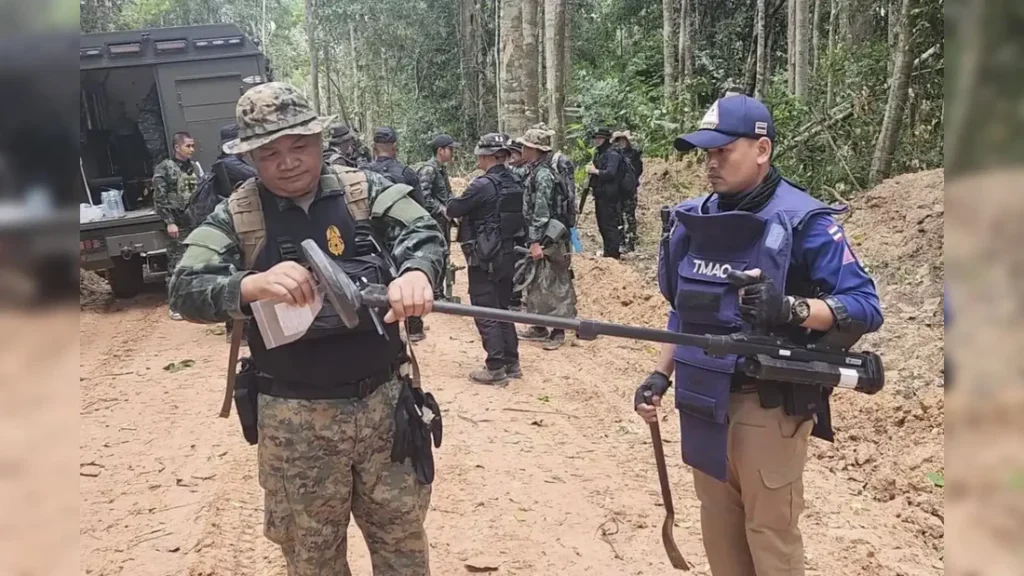Tensions between Cambodia and Thailand have intensified dramatically, with Cambodia calling for an “immediate and unconditional” ceasefire as fighting entered its third day, leaving at least 32 people dead and displacing nearly 200,000 others.
Cambodia’s ambassador to the United Nations, Chhea Keo, made a passionate plea for peace, emphasizing his country’s desire for a “peaceful solution” to the ongoing border dispute. Despite the call for calm, Thailand has yet to officially respond, and fighting continues to rage along multiple points on the border.
Thai officials reported that Cambodia’s forces launched attacks in a new area near the southern coast but were repelled by the Thai navy. Skirmishes have also been recorded in the Thai provinces of Surin, Ubon Ratchathani, and Srisaket, prompting martial law declarations in eight districts.
The human toll has been severe. Thailand has reported 19 fatalities 13 civilians and six soldiers along with the evacuation of nearly 140,000 people. Cambodia’s defense ministry reported 13 deaths, including eight civilians, and confirmed that over 35,000 citizens have fled their homes.
Acting Thai Prime Minister Phumtham Wechayachai warned that the clashes risk escalating into full-scale war, citing the use of heavy weaponry and fighting across 12 different locations. Both nations have accused each other of initiating the violence and targeting civilians. Thailand claims Cambodia deployed drones for surveillance, while Cambodia insists Thai forces breached an agreement by advancing near a contested Khmer-Hindu temple.
In a worrying development, Cambodia accused Thailand of using internationally banned cluster munitions, which cause indiscriminate harm. Thailand has not responded to this allegation.
International actors, including the United States and Malaysia, have urged both nations to halt hostilities and protect civilians. Malaysian Prime Minister Anwar Ibrahim, as current ASEAN chair, has offered to mediate, but Thailand’s foreign minister rejected the need for third-party intervention.
The long-standing border dispute, rooted in colonial-era demarcations, has led to repeated clashes over the decades. The current escalation triggered by a May skirmish that killed a Cambodian soldier marks the most serious deterioration in bilateral ties in over ten years.

